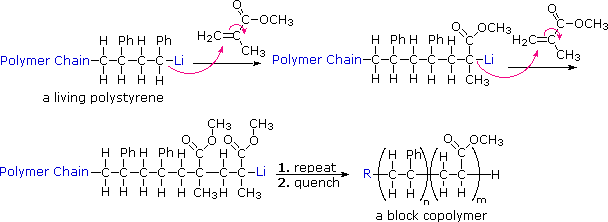High-Performance Polymers: Advanced Materials for Industry
High-Performance Polymers: Advanced Materials for Industry
Blog Article
Taking Advantage Of the Power of Polymers: Recognizing the Comprehensive Usages and Positive Impacts
Polymers, with their varied chemical structures and homes, have become important in various industries, transforming the means we communicate with materials every day. From the product packaging that safeguards our food to the fibers that outfit us, the applications of polymers are vast and differed. Beyond their common presence lies a much deeper understanding of their positive effects, reaching much past mere ease. As we discover the extensive usages of polymers and their duty in forming a much more sustainable, efficient, and ingenious future, it becomes apparent that their possibility is as large as the particles themselves.
Versatility in Everyday Products
Polymers exhibit impressive flexibility in a large array of everyday items, demonstrating their crucial function in modern culture. From the versatile plastic covering of smartphones to the long lasting fibers in apparel, polymers have actually changed the way we interact with products in our day-to-day lives. One of one of the most common uses of polymers is in packaging products. Polyethylene, for instance, is extensively made use of in food product packaging as a result of its lightweight, resilient, and moisture-resistant homes. Furthermore, polymers play a vital role in the vehicle industry, where they are utilized in making lightweight parts that enhance gas efficiency.
Biodegradable polymers are used in stitches and implants, minimizing the danger of damaging responses in people. In the building industry, polymers are integrated right into paints, adhesives, and insulation materials, enhancing resilience and energy performance.
Sustainability in Product Innovations
With the continuous focus on ecological awareness and source effectiveness, the focus moves in the direction of sustainability in product technologies, reflecting a growing dedication to responsible production techniques across numerous sectors. In recent times, there has been a noteworthy rise in the development of sustainable materials, specifically within the world of polymers. These cutting-edge materials are created to lessen ecological effect throughout their whole lifecycle-- from sourcing basic materials to disposal or recycling.
One considerable aspect of sustainability in material advancements is the concept of biodegradability. Biodegradable polymers have gathered attention for their capability to damage down naturally right into safe byproducts, lowering waste and pollution. Furthermore, using recycled polymers stemmed from post-consumer or post-industrial resources is gaining grip as a way of advertising a circular economy and reducing dependency on virgin products.

Enhancing Efficiency in Design
Enhancing performance in design calls for a careful combination of innovative innovations and precise methods to enhance capability and performance in numerous industrial applications. Polymers play an important role in this venture, using a large array of benefits that improve the efficiency of design products and elements.
One trick aspect of improving efficiency in design is the capability of polymers to boost resilience and strength. By integrating polymers right into design designs, producers can create lightweight yet robust structures that can withstand high degrees of stress and pressure. This check it out characteristic is specifically valuable in markets such as aerospace, vehicle, and building, where the demand for strong yet light-weight products is extremely important.
Additionally, polymers can additionally improve performance by providing thermal and chemical resistance, lowering friction, and boosting electrical conductivity. These homes make polymers excellent for a broad range of engineering applications, including seals, bearings, finishes, imp source and digital components. Polymers. By harnessing the special buildings of polymers, designers can maximize the performance of their designs and produce extra efficient and dependable products
Effect On Clinical Developments
Polymers have actually played a crucial role in contemporary medical developments, ranging from medication delivery systems to tissue engineering. One of the crucial areas where polymers have actually made a substantial impact is in the growth of naturally degradable sutures and implants.
In addition, polymer-based materials are increasingly being used in clinical tools such as catheters, stents, and prosthetics due to their biocompatibility and convenience. Polymer layers on clinical tools can avoid infections and enhance overall individual end results - Polymers. In addition, improvements in nanomedicine have enabled making use of polymer nanoparticles for targeted drug shipment, improving the efficiency and minimizing negative effects of various drugs
Role in Environmental Preservation

In addition, polymers are utilized in water therapy procedures, aiding in the purification and recycling of water resources. This aids in decreasing water air pollution and guaranteeing accessibility to tidy water for both human consumption and environmental health. Polymers likewise play a duty in agriculture with the advancement of biodegradable mulches and controlled-release plant foods, promoting sustainable farming methods.
Verdict
In conclusion, polymers have actually verified to be a flexible and important material in numerous sectors, from daily items to engineering and medical advancements. Understanding the substantial uses of polymers underscores their importance in driving innovation and progression in numerous areas.
Report this page